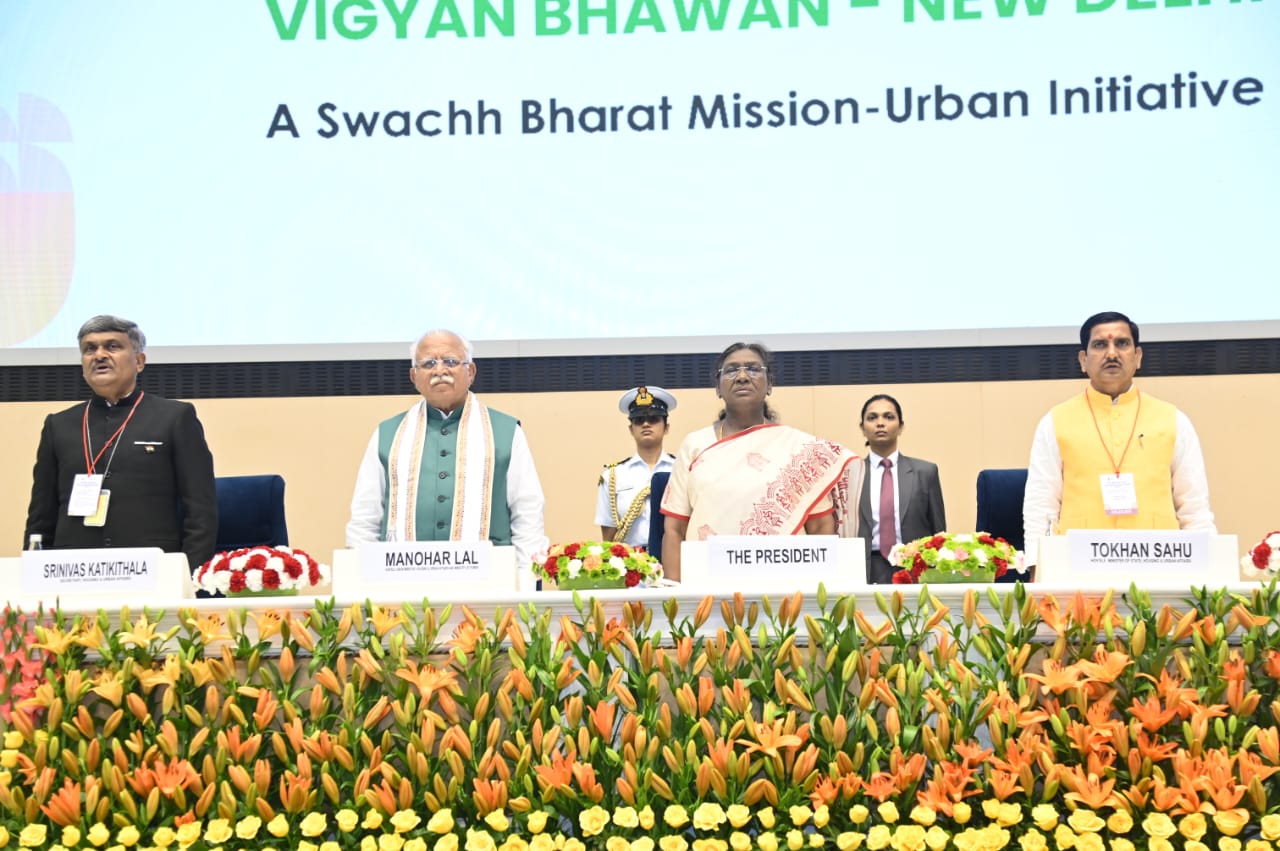Swachh Survekshan 2024 Awards: President Murmu Emphasises Cleanliness as Pillar of National Progress
Echoing Mahatma Gandhi’s ideals, the President reminded the nation that cleanliness is deeply embedded in Indian cultural and spiritual traditions.

- Country:
- India
The President of India, Smt Droupadi Murmu, today presented the Swachh Survekshan 2024 Awards at a prestigious function organised by the Ministry of Housing and Urban Affairs in the national capital. The ceremony honoured top-performing cities, urban local bodies, and communities that excelled in cleanliness and sanitation efforts under the world’s largest cleanliness survey.
The Swachh Survekshan awards are part of the Swachh Bharat Mission – Urban, which aims to transform India into a clean and garbage-free nation through people’s participation and robust governance mechanisms.
Celebrating the World’s Largest Cleanliness Survey
In her keynote address, President Murmu acknowledged the scale and inclusiveness of the 2024 Swachh Survekshan, noting that it successfully engaged:
-
Multiple stakeholders including state governments, urban local bodies, and non-government actors
-
An unprecedented 14 crore citizens, demonstrating the public’s commitment to hygiene and urban development
The President praised the Ministry of Housing and Urban Affairs for using the platform of competitive federalism to accelerate urban transformation across India.
Cleanliness: An Ancient Ethos, A Modern Mission
Echoing Mahatma Gandhi’s ideals, the President reminded the nation that cleanliness is deeply embedded in Indian cultural and spiritual traditions. From maintaining personal hygiene to preserving public spaces and temples, Indians have historically valued cleanliness as both a civic virtue and a moral obligation.
She revealed that her own public life began with a focus on cleanliness, when she served as Vice President of the Notified Area Council, regularly inspecting wards and personally overseeing sanitation drives.
Advocating Circular Economy and Responsible Consumption
Smt. Murmu emphasized the philosophy of minimum waste and sustainable resource use — hallmarks of traditional Indian lifestyles. She illustrated how tribal communities exemplify these principles by:
-
Consuming fewer natural resources
-
Living in harmony with the environment
-
Practicing communal responsibility in resource usage
She urged the public to adopt reduce-reuse-recycle practices and enhance circular economy models, which can greatly aid modern waste management systems.
Prioritizing Source Segregation and Zero-Waste Communities
The President called source segregation the most critical step in the waste management value chain. She stressed that all stakeholders — especially households — must take this responsibility seriously.
She commended the emergence of zero-waste colonies and praised their replicable models, which foster community participation and sustainability.
Recognizing School-Level Cleanliness Initiatives
Highlighting the role of education, President Murmu lauded the School Level Assessment initiative, which encourages students to adopt cleanliness as a core life value. This effort, she said, would yield long-term societal change, cultivating a generation that prioritizes hygiene and environmental responsibility.
Tackling Plastic and E-Waste Pollution
The President drew attention to the increasing threat of plastic and electronic waste, urging strict compliance with regulatory frameworks. She referenced two key government steps:
-
The 2022 ban on select single-use plastic items
-
The introduction of Extended Producer Responsibility (EPR) guidelines, making it mandatory for manufacturers, brand owners, and importers to manage plastic packaging waste responsibly
She urged all stakeholders to fulfill their responsibilities and work collaboratively toward reducing India’s plastic footprint.
Cleanliness: A National Vision with Global Aspirations
In her concluding remarks, President Murmu described cleanliness as a multidimensional effort with economic, cultural, and geographical implications. She expressed confidence that India, through the Swachh Bharat Mission, would continue its journey towards becoming one of the cleanest countries in the world by 2047, the centenary of India’s independence.
She called on citizens to continue contributing to this transformative mission with dedication and strong resolve, making cleanliness a cornerstone of Developed India.










